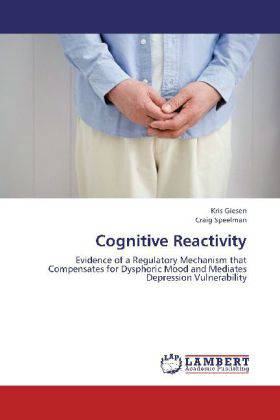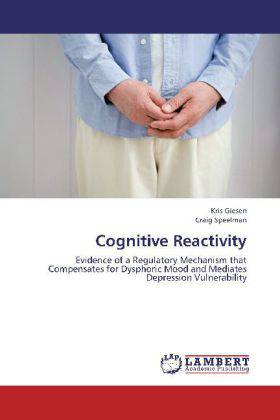
Je cadeautjes zeker op tijd in huis hebben voor de feestdagen? Kom langs in onze winkels en vind het perfecte geschenk!
- Afhalen na 1 uur in een winkel met voorraad
- Gratis thuislevering in België vanaf € 30
- Ruim aanbod met 7 miljoen producten
Je cadeautjes zeker op tijd in huis hebben voor de feestdagen? Kom langs in onze winkels en vind het perfecte geschenk!
- Afhalen na 1 uur in een winkel met voorraad
- Gratis thuislevering in België vanaf € 30
- Ruim aanbod met 7 miljoen producten
Zoeken
Cognitive Reactivity
Evidence of a Regulatory Mechanism that Compensates for Dysphoric Mood and Mediates Depression Vulnerability
Kris Giesen, Craig Speelman
Paperback | Engels
€ 104,45
+ 208 punten
Omschrijving
This study examined the cognitive operations and responses implicated in depression vulnerability to assess whether a depressive episode can be predicted. It involved 332 never depressed (ND), formerly depressed (FD), and currently depressed (CD) women undergoing a major life transition (motherhood or first year university), with 267 involved in the follow-up phase 3 months later. The results that emerged from this study suggest that depression vulnerability might be associated with a dysfunctional regulatory mechanism involved in mediating the affective response. However, the lack of uniform responses on the depression and mood indices, even within the respective groups, challenges the possibility of ever being able to reliably predict depression by examining discrete cognitive responses. Implications for theories and clinical practice are discussed, along with an emphasis on involving factors constituting depression resilience. A new perspective of conceiving depression vulnerability is also proposed. This perspective is in the context of complex systems and dynamic equilibriums, and explains why predicting depression might remain a problem.
Specificaties
Betrokkenen
- Auteur(s):
- Uitgeverij:
Inhoud
- Aantal bladzijden:
- 416
- Taal:
- Engels
Eigenschappen
- Productcode (EAN):
- 9783659314551
- Verschijningsdatum:
- 10/01/2013
- Uitvoering:
- Paperback
- Afmetingen:
- 150 mm x 220 mm
- Gewicht:
- 608 g

Alleen bij Standaard Boekhandel
+ 208 punten op je klantenkaart van Standaard Boekhandel
Beoordelingen
We publiceren alleen reviews die voldoen aan de voorwaarden voor reviews. Bekijk onze voorwaarden voor reviews.









